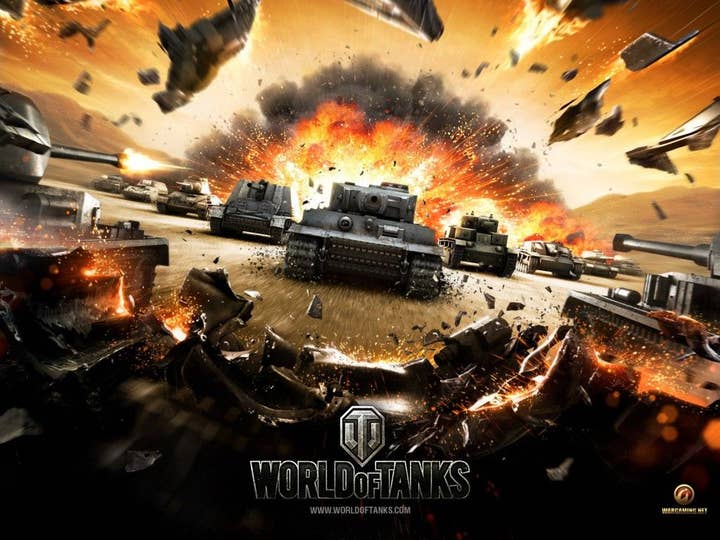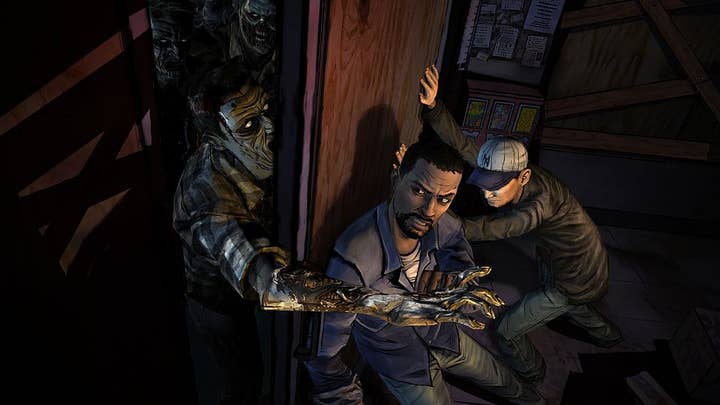Game Marketing: "If the rules of the game aren't working, change the rules"
Sessions on the growth of eSports, The Walking Dead's marketing, and the “wild wild west” of Google Play reveal how some are reaching new audiences
The Game Marketing Summit is a one-day event that brings together marketing and brand management execs to "discuss, deliberate, debate and celebrate the issues, opportunities and successes driving the interactive entertainment industry." This year, the Summit's panels ranged from discussing the changing nature of the audience to the best techniques and practices for reaching that audience.
Demographic shifts are familiar to marketers, but historically they have usually been slow and therefore easy to integrate into long-term marketing plans. The nature of the audience is changing, in their attitudes and the way they relate to brands and gather information. The opening session brought four Gen Y kids on stage to be interviewed by Wilson Standish, head of trends at consulting firm Trendera. They were 18 to 21 years old, representing the broader Gen Y demographic loosely defined as 18-36. Standish queried them on how they connected with brands, what social media they used and how they found out about games.
Facebook was used by all, but has mostly been avoided due to the clutter, according to the panelists. They favored Instagram for casual browsing, and mostly ignored Twitter. How do they learn about games? Primarily from friends, but checking out reviews online seems to be standard practice. One college student noted how he'd run across a PlayStation kiosk set up on campus to let students experience games first-hand, which he thought was a great way to try things out. None of the kids had a TV or watched many shows, which seemed to cause Summit emcee Geoff Keighley (noted TV host) some angst.
"[eSports are] a new way to market your game"
Joshua Milligan, Ubisoft
The keynote address from Jack Myers, media consultant, also focused on the age range of 17-21. Myers noted that this generation has grown up on gaming and the Internet, and sees gaming as a natural part of life and business. He cited figures that 83 percent of this group are gamers, and 70 percent game daily. Myers feels that this generation will have a huge impact on the world as they enter the workforce and eventually take up leadership positions. Myers noted that business is powered by sharing, communication, creativity, collaboration, strategy, and problem solving - which are also the foundations of gaming.
The changing marketplace was illustrated in a different way by the panel on eSports, which featured Sundance DiGiovanni, CEO of Major League Gaming, Ryan Wyatt (head of eSports) of Machinima, Marcus Graham (senior manager of partnerships and noted shoutcaster) from Twitch, Dennis Fong (CEO and former pro gamer) from Raptr, and Josh Milligan (senior director of online strategy) from Ubisoft. The panelists noted the vast shift in technology, publishers and the audience over the past five years as eSports has grown explosively.
"Over the last five years, broadcast technology has enabled us to get hundreds of thousands of people to watch streams," noted DiGiovanni. Graham added that Twitch has gone from 3 million unique viewers a month last year to 30 million unique viewers per month this year. The rise in eSports hasn't been lost on publishers, either; Milligan said that "It's a new way to market your game."
"In the next five years, with support built into hardware and engines, eSports will be hitting an audience of hundreds of millions"
Sundance DiGiovanni, Major League Gaming
The technology that enables livestreaming has gone from costing thousands of dollars to being built into the next generation of consoles, as demonstrated at the PS4 introduction. As a consequence, eSports has abandoned the idea of live broadcast TV. "We don't need it," said Graham. "It has hurt gaming more than it has helped." With livestreaming, Graham noted, you can have viewers everywhere and you break those regional walls that broadcast TV is based upon.
The popularity of streaming has also transformed lives. "Some guys make millions," said Wyatt. He said one guy is making Minecraft videos and just bought a house and a car with his earnings of a few months. DiGiovanni sees the future as even bigger. "In the next five years, with support built into hardware and engines, eSports will be hitting an audience of hundreds of millions," he claimed.

The afternoon sessions shifted gears to talk about tools and techniques. Steve Allison, senior VP of publishing for Telltale Games, presented a case study of the marketing for The Walking Dead game. That game has been a huge hit for Telltale, winning over 60 awards and racking up sales of over 11 million episodes so far, and it's still selling strongly.
Allison said that Telltale did substantial research before beginning marketing efforts for the game. Surveys found that customers expected a game based on the TV show, featuring Rick Grimes (the main character on the show), and some sort of first- or third-person shooter, or perhaps an open-world game. Unfortunately for Telltale, the game it was designing was none of these things. Telltale's game was based on the graphic novel the series was drawn from, and it was an adventure game using a brand new character. This created a substantial marketing challenge.
Telltale's working philosphy was "If the rules of the game aren't working, change the rules," Allison said. Telltale worked hard to change expectations for the game by using a series of videos, which included an interview with Walking Dead creator Robert Kirkman. Additionally, Telltale brought in key members of the press to let them play through the entire game in one sitting in an effort to create champions for the game among the press corps. This worked, gaining enthusiastic support from sites like IGN and Destructoid. Ultimately The Walking Dead achieved a 92 percent Metacritic score, the highest of any game in 2012.
"We see search as the world's largest focus group. Last year we saw 3 billion searches for F2P games"
Molly Passanisi, Google
Discoverability for free-to-play (F2P) games was the subject of a panel led by analyst David Cole of DFC Intelligence, featuring Sho Masuda (VP of marketing) from Gree, Erlend Christoffersen (head of user acquisition) of Supercell, Molly Passanisi (head of online gaming) from Google, George Leee (product manager for gaming) from Facebook, and Jeremy Monroe (general manager for America) of Wargaming. Cole noted that free-to-play has become a marketing strategy that allows consumers to get into a game without a big upfront cost.
"We see search as the world's largest focus group," noted Google's Passanisi "Last year we saw 3 billion searches for F2P games. That's a huge number globally; it is a really big market." Overall interest in F2P games is growing in Asia and North America, but declining in Europe, according to the number of Google searches.
Cole wondered if it was going to be possible to turn around the attitude of many consumers that F2P games are lower quality than traditional pay-up-front games. "It always come down to a quality game experience," said Monroe. "Over the past couple of years in the core gaming side of it you've seen folks like us and Riot building F2P from the ground up, and building great experiences for people. The market is evolving , but there are a couple of pivotal moments that still need to happen in the market that will really tip it from a relevancy standpoint. That will allow it to shed a lot of the baggage that holds it back. It will probably be another year before all the stigma is gone."
The longevity of F2P games came up for discussion, and Masuda said Gree has seen some games lasting more than 18 months and still going strong. "Retention and engagement are actually our two most important metrics," commented Christoffersen. "We have only two titles in the market right now, Hay Day and Clash of Clans, and we believe that they could have a lifespan of years if not decades if managed correctly."
The panelists were in general agreement that focusing on the game and support for the community is ultimately far more useful than focusing on monetization. Monroe noted that Wargmaing America spent months building a service and community team before adding anyone to handle marketing. Monroe said that support and community will still be the biggest area of investment for Wargaming even two years from now.
Cole wondered how quality control is handled by aggregators like Google. "From our perspective, we realize that it is the wild, wild west when it comes to the storefront. We've seen even in the last couple of months that Google Play has stepped up and doubled its staff, focused on editorial," said Passanisi. "What are the great games out there, and how do we feature them?" An important question going forward for both the mobile and PC markets, as thousands of new games continue to appear. Still, the panelists are optimistic about market growth; Masuda noted that Gree expects that mobile will be an $11 billion market by 2014, driven by continued strong growth in tablet games.
The Game Marketing Awards were held that evening following the sessions. The big winner was Halo 4, which won Outstanding Overall Marketing Campaign of the Year, Standout ad Campaign, and Best Use of Social Media Marketing. The Agency of the Year was Ant Farm, and Ubisoft won In-House Marketing Team of the Year. A complete list of winners can be found here.

